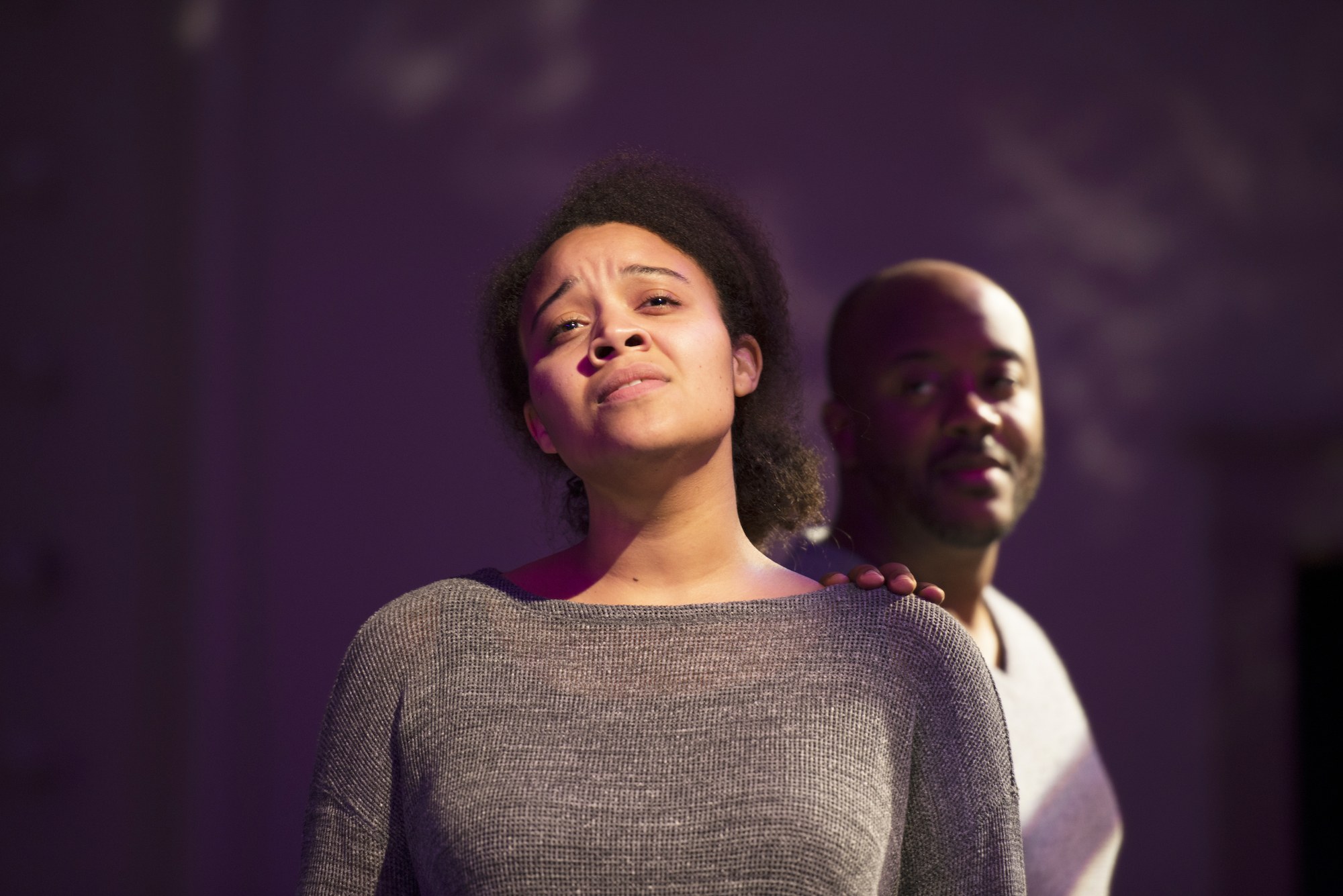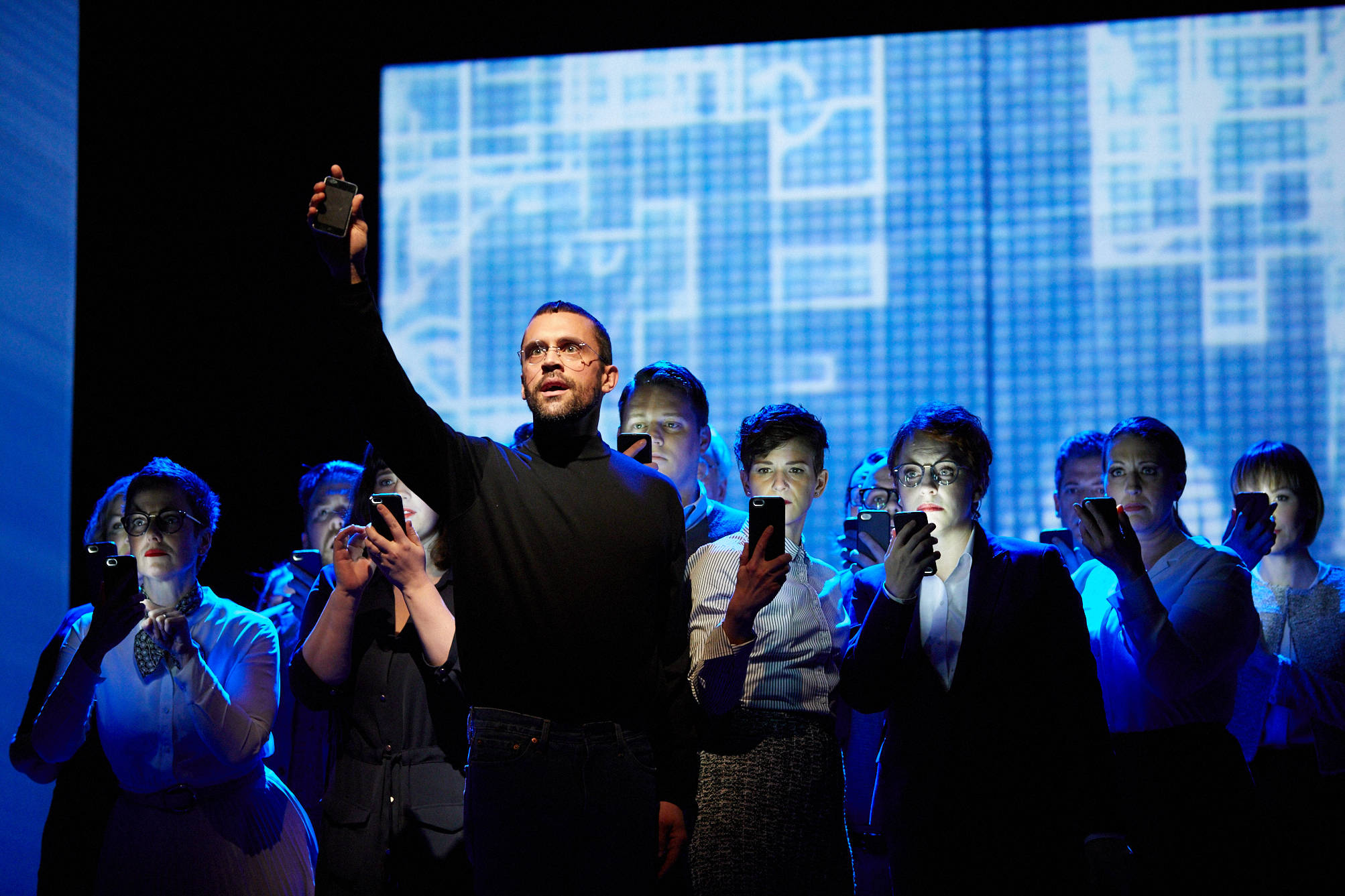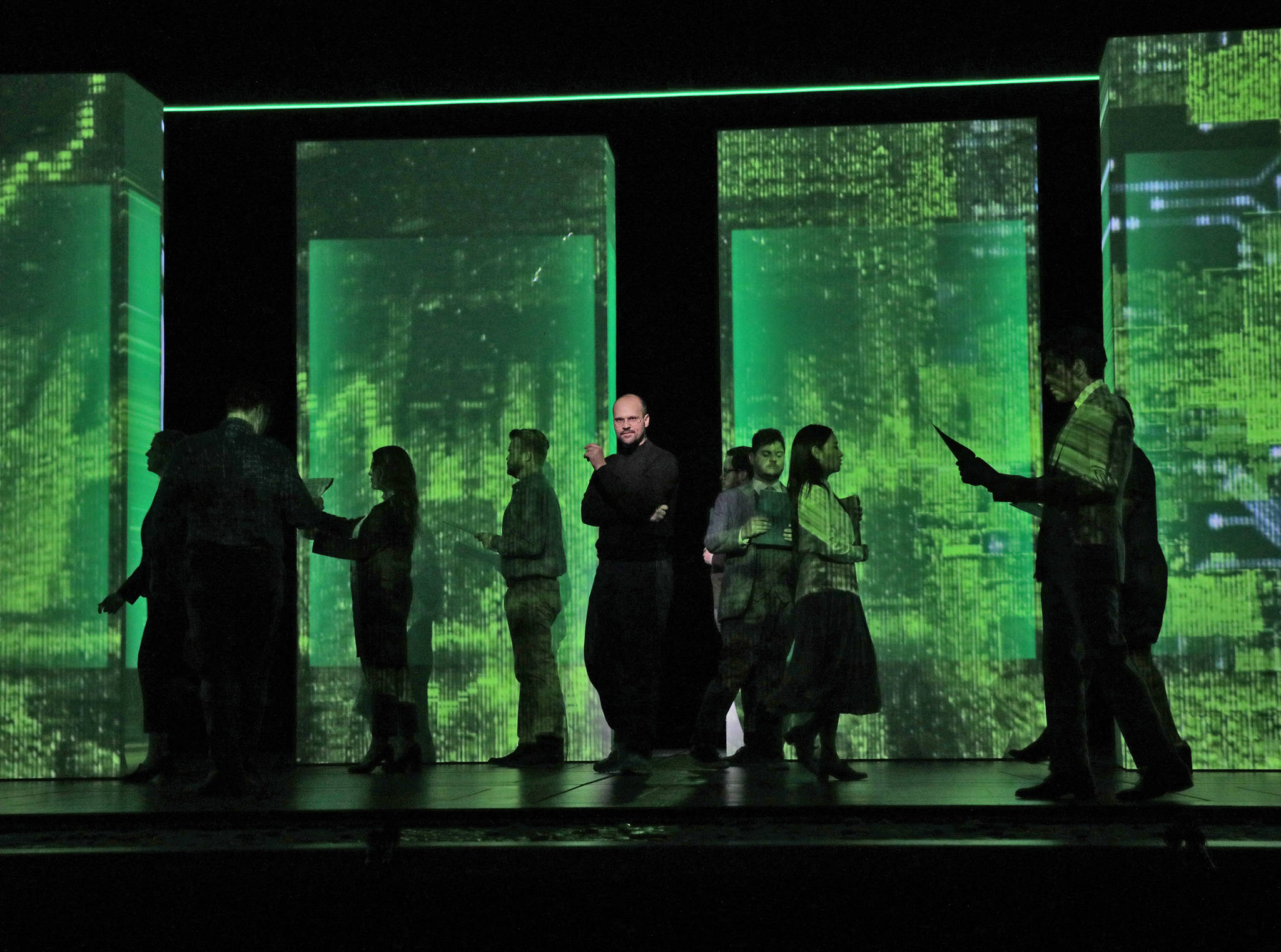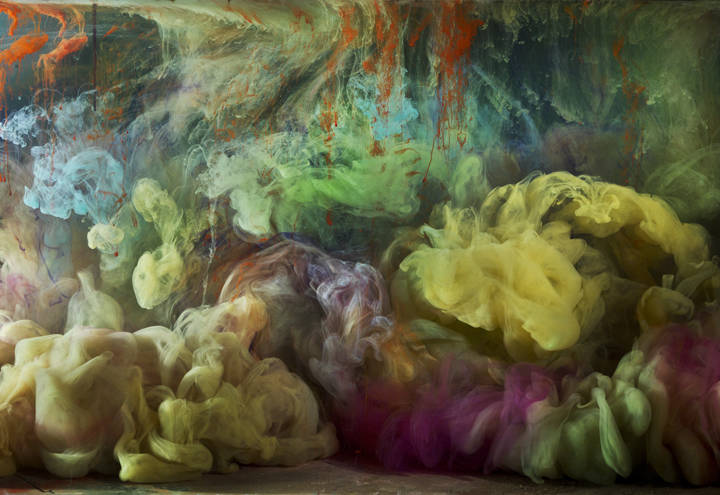No opera, to my knowledge, has told the story of a trans person as either a central or subsidiary character, but novelty alone wouldn’t be enough to carry As One had not that story been framed with such expert and thoughtful craft. Its two-weekend run, in Seattle Opera’s production, opened Friday, and that performance showed that composer Laura Kaminsky seems to have made every possible right choice to maximize the impact of Mark Campbell and Kimberly Reed’s libretto.
The opera—one act, 90 minutes—was premiered in 2014 at the Brooklyn Academy of Music. It calls on two singers to portray twin aspects of a single protagonist: baritone Jorell Williams as “Hannah before” and mezzo-soprano Taylor Raven as “Hannah after.” The libretto is built of 15 separate musical numbers, snapshots of Hannah’s path from grade school to young adulthood, from discovery and questioning through confusion and shame to clarity and acceptance. Nearly all these numbers use both voices, imaginatively deployed in various ways: solos for each singer; duets in counterpoint, in dialogue, and (most movingly) in unison; heard both onstage and off.
Kaminsky’s skillful and sensitive word-setting shares credit with the singers’ diction for a really unprecedented level, in my operagoing experience, of intelligibility—somewhere around 95 percent of what was sung, I understood. (Printed librettos are provided, but you won’t need one.) Most of it is declamatory, one note per syllable, but Kaminsky lets the vocal lines break into melisma (several notes per syllable) in moments of joy or epiphany—a device that’s remained ever-potent as a signifier of expanded emotion in the centuries since its invention. Kaminsky chose a string quartet (here the Saint Helens String Quartet) as her mini-orchestra, giving it music that balances support of the vocal lines with intrinsic interest of its own. Much of the music is slow and reflective—naturally, given a libretto that’s all reminiscence—eased with episodes of Reich-like, strongly pulsed propulsion.
Similarly, the somberness of the libretto, drawing on extremes of pathos (in yuletide conversations between Hannah before and his unseen mother that reverberate with what’s unsaid) and horror (the recitation of the names of victims of anti-trans violence), is leavened with a good amount of wit. The staging here is minimal, just chairs and two movable door frames on wheels, but the opera could easily accept a more elaborate full staging, or none at all—presented as an evening-length song cycle with two singers and two music stands. If a piano reduction has been made of the string-quartet score, the piece may not even need a conductor (for this run, it’s John Keene).
In short, As One, both inspiring and groundbreaking, innovative yet relatable, is built to travel, and deserves to. It’s also a gift: to college music departments hungry for work that doesn’t require expensive staging but that offers juicy roles to young singers who want to stretch both musically and dramatically, and to opera companies hoping to reach untapped audiences who may be more drawn by an examination of here-and-now issues than by vengeful gods or scheming soubrettes. This latest in Seattle Opera’s presentation of contemporary chamber operas (following Jack Perla’s An American Dream from 2015 and Eric Banks’ myth-based Our Earth cycle of operas for families) continues, thrillingly, its commitment to move forward—to not merely show off the operatic repertory, but to add to it. As One, Washington Hall, 153 14th Ave., seattleopera.org. $25–$40. 7:30 p.m. Thurs., Nov. 17–Sat., Nov. 19.
gborchert@seattleweekly.com








